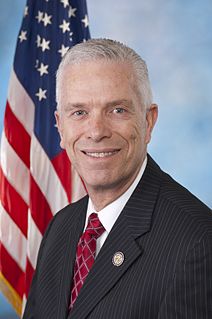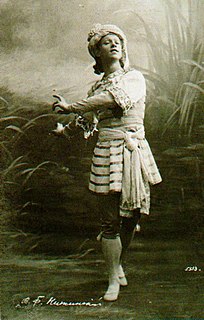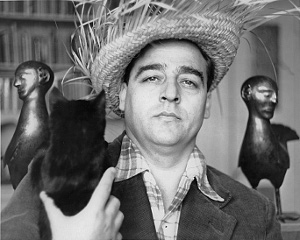A Quote by Aiden Wilson Tozer
God created our souls to be satisfied only with the divine everlastingness of the Word made flesh.
Related Quotes
Just as the teaching of the Law and the prophets, being harbingers of the coming advent of the Logos in the flesh, guide our souls to Christ (cf. Gal. 3:24), so the glorified incarnate Logos of God is Himself a harbinger of His spiritual advent, leading our souls forward by His own teachings to receive His divine and manifest advent. He does this ceaselessly, by means of the virtues converting those found worthy from the flesh to the spirit. And He will do it at the end of the age, making manifest what has hitherto been hidden from men.
I am not an ape, I am a man. The world has been created by God. Man has been created by God. It is not possible for man to understand God - God understands God. Man is God and therefore understands God. I am God. I am a man. I am good and not a beast. I am an animal with reason. I have flesh, I *am* flesh, I am not descended from flesh. Flesh is created by God. I am God. I am God. I am God.
...if anyone looks with faith at the mystical table and the Bread of Life placed on it, he sees the Person of the Word of God, Who was made flesh for our sake and dwelt among us (John 1:14). If he shows himself a worthy receptacle, he will not only see but become a partaker of Him, receive Him to dwell within him, and be filled with His divine grace.
The problem of reconciling human suffering with the existence of a God who loves, is only insoluble so long as we attach a trivial meaning to the word "love", and look on things as if man were the centre of them. Man is not the centre. God does not exist for the sake of man. Man does not exist for his own sake. "Thou hast created all things, and for thy pleasure they are and were created." We were made not primarily that we may love God (though we were made for that too) but that God may love us, that we may become objects in which the divine love may rest "well pleased".
"Both Christianity and Islam are logocentric," he told his students, "meaning they are focused on the Word. In Christian tradition, the Word became flesh in the book of John: 'And the Word was made flesh, and He dwelt among us. 'Therefore, it was acceptable to depict the Word as having a human form. In Islamic tradition, however, the Word did not become flesh, and therefore the Word needs to remain in the form of a word … in most cases, calligraphic renderings of the names of the holy figures of Islam."






































